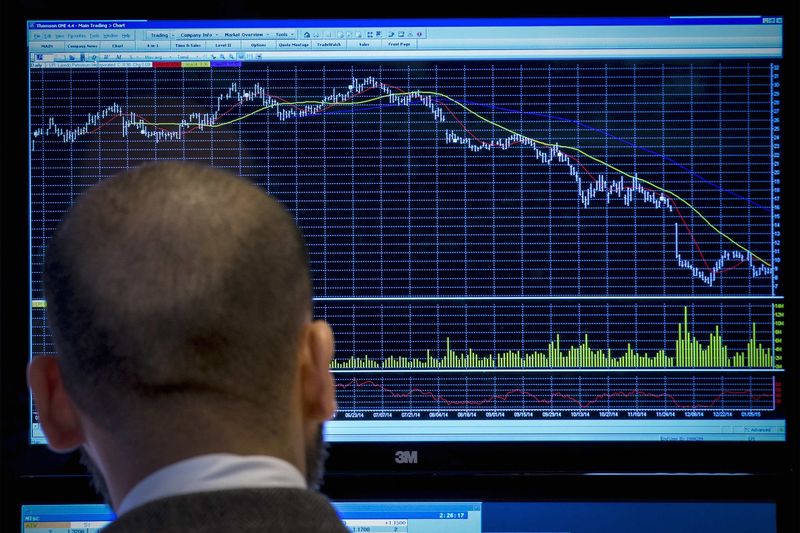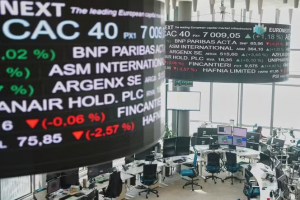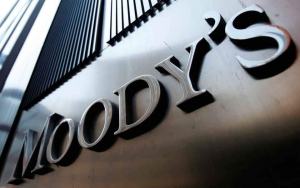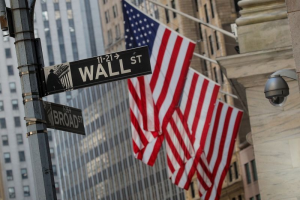U.S. stock futures rise at the start of a week that includes several major central bank meetings, including the Federal Reserve, as well as earnings from key tech companies. Apple is taking its time incorporating artificial intelligence features into its key products, while the European corporate results season also continues.
1. Fed leads central bank parade this week The spotlight this week will be on central banks, with the Federal Reserve, the Bank of England and the Bank of Japan all set to hold policy meetings.
The Fed concludes its July policy meeting on Wednesday, and is widely expected to maintain its benchmark overnight interest rate in the current 5.25%-5.50% range, as it has done since last July.
However, markets are overwhelmingly expecting a September rate cut, especially after Friday’s personal consumption expenditures price index, the Fed’s favorite gauge of inflation, showed signs of cooling prices.
Thus the statement by Fed Chair Jerome Powell will be studied carefully to see if he sets the stage for a rate cut at the next meeting.
The Bank of Japan concludes its latest policy setting meeting on Wednesday, and speculation over the prospect of a rate hike is mounting despite a fragile economy and weak consumer sentiment.
The Bank of England meets on Thursday amid a great deal of uncertainty over whether policymakers will deliver their first rate cut since 2020.
Last month, the BoE's Monetary Policy Committee voted 7-2 to keep rates on hold, but this decision is expected to be more finely balanced with policymakers having to judge between higher-than-expected service price inflation and weak growth.
2. Futures rise ahead of Fed meeting, earnings U.S. stock futures edged higher Monday at the start of a week dominated by a Federal Reserve meeting as well as a number of key corporate earnings.
By 04:05 ET (08:05 GMT), the Dow futures contract was 60 points, or 0.2%, higher, S&P 500 futures climbed 12 points, or 0.2%, and Nasdaq 100 futures rose by 70 points, or 0.4%.
The major indices slipped lower last week, with the Nasdaq Composite hit hard, in particular, by the cooling off of the tech trade.
Big Tech earnings are set to continue in the coming days, with Microsoft (NASDAQ:MSFT) scheduled to report earnings on Tuesday, followed by Facebook-parent Meta (NASDAQ:META) on Wednesday and Apple (NASDAQ:AAPL) as well as Amazon (NASDAQ:AMZN) on Thursday.
Disappointing numbers could reignite the worries that caused a bruising selloff last week, with the Nasdaq suffering its worst day since late 2022 on Wednesday.
3. Apple’s AI plans take time Apple (NASDAQ:AAPL) is taking longer than expected including its recently unveiled artificial intelligence features, known as Apple Intelligence, into its flagship iPhone and iPad devices, and they will not be included in an initial software update, according to a report by Bloomberg.
Apple’s AI plans will miss the initial September releases of iOS 18 and iPadOS 18, the Bloomberg report showed, but should be included with the October updates.
The company had in June unveiled a slew of new AI-powered features for its flagship devices, hoping the seemingly insatiable demand for all things AI would help the firm offset steadily slowing sales of its flagship iPhone.
3rd party Ad. Not an offer or recommendation by Investing.com. See disclosure here or remove ads. Apple is set to report its June quarter earnings later this week, and is expected to log a sustained decline in device sales amid increased competition and saturation in the smartphone market.
4. Heineken writes down Chinese investment’s value There are also earnings in Europe to digest, as the second-quarter results season continues.
Heineken (AS:HEIN) shares slumped 7% after the world’s second-largest brewer missed half-year estimates and announced a hefty impairment, as it wrote down the value of its 40% stake in China Resources Beer.
That said, Heineken also raised its full-year profit guidance, expecting to deliver organic operating profit growth of between 4% and 8% in 2024, compared to its previous guidance of between low and high single-digit growth.
Philips (AS:PHG) stock rose 10% after the Dutch medical device maker reported second-quarter results that beat expectations, boosted by higher earnings, the implementation of its restructuring program and insurance income linked to its Respironics product liability claims.
Pearson (LON:PSON) stock fell 3.5% after the educational publisher posted a drop in pretax profit compared with a year earlier, even as the company said it is on track to meet full-year expectations.
5. Crude gains on raised Middle East tensions Crude prices rose Monday on concerns of a widening conflict in the Middle East, potentially impacting global supply, after a deadly rocket strike in the Israeli-occupied Golan Heights.
By 04:05 ET, the U.S. crude futures (WTI) climbed 0.1% to $77.20 a barrel, while the Brent contract rose 0.1% to $80.38 a barrel.
The weekend’s strike reportedly killed at least 12 people, and has been blamed by both Israel and the U.S. on Iran-backed Hezbollah, who have denied responsibility for the attack.
Israel has vowed retaliation against Hezbollah in Lebanon, and Israeli jets hit targets in southern Lebanon on Sunday.
These increasing tensions are also seen diminishing the prospect of a ceasefire between Israel and Hamas, as hopes of a ceasefire in Gaza had been gaining momentum.













